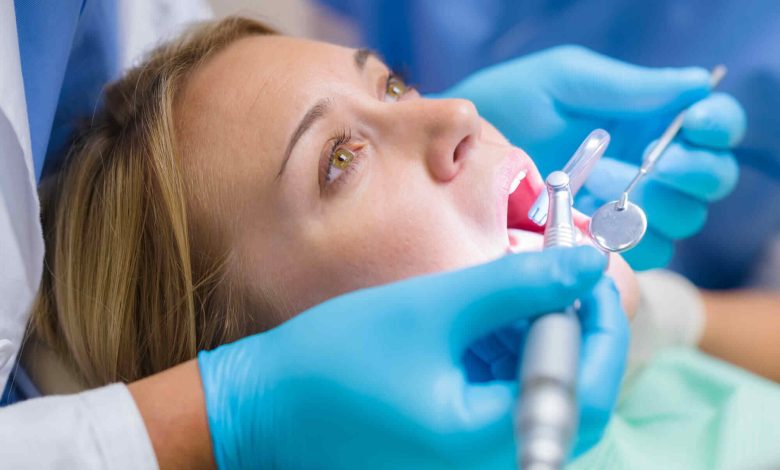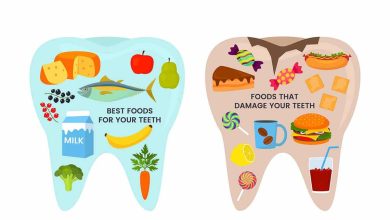Wisdom Tooth Sedation: Few Ways To Keep Your Future Dental Visit A Breeze

Introduction:
For many people, the thought of getting their wisdom teeth removed is a daunting one. It’s understandable – after all, it’s surgery! And, on top of that, you have to go to the dentist. But did you know that there are a few things you can do to make your wisdom teeth sedation experience much easier?
In this blog post, we will explore 9 ways to keep your future dental visit a breeze. From choosing the right dentist to preparing for your surgery, we will cover everything you need to know to ensure a smooth and easy experience.
Different Types of Sedation:
There are four main types of sedation used for wisdom tooth extractions: local anesthesia, nitrous oxide, intravenous (IV) sedation, and general anesthesia.
Local anesthesia numbs the area around your wisdom teeth. Nitrous oxide, or laughing gas, is a mild sedative that helps you relax. IV sedation is a stronger type of sedation that is administered through a vein in your arm. General anesthesia puts you to sleep during the procedure.
Your dentist will recommend the type of sedation based on your medical history, the severity of your case, and your personal preferences.
Pros and Cons of Each Type of Sedation:
There are several types of wisdom teeth removal London that can be used for wisdom tooth extractions, each with its own set of pros and cons.
Local anesthesia numbs the area around the wisdom tooth so that you won’t feel any pain during the procedure. The main disadvantage of local anesthesia is that you will be awake during the extraction, which some people find anxiety-provoking.
Nitrous oxide (laughing gas) is a type of sedation that helps to relax you and reduce any anxiety you may feel about the procedure. The main disadvantage of nitrous oxide is that it only takes effect while you’re inhaling it, so you will need to keep your mouth open throughout the entire procedure.
Oral conscious sedation involves taking a pill before your appointment to help you relax. The main disadvantage of oral conscious sedation is that it can cause drowsiness and make it difficult for you to drive yourself home after the procedure.
IV sedation involves having a small needle inserted into your vein to deliver medication that will help you relax. The main advantage of IV sedation is that it works very quickly and can be adjusted to achieve the desired level of sedation. The main disadvantage of IV sedation is that it requires someone to drive you home after the procedure.
Which Type of Sedation Is Best for Wisdom Teeth Sedation?
There are a few types of sedation that can be used for wisdom teeth sedation, and the best type for you will depend on your individual situation. Here is a brief overview of the most common types of sedation:
IV Sedation:
IV sedation is administered through a small needle placed in your arm. It is one of the strongest types of sedation available, and you will likely not remember anything about your procedure once it is over.
Oral Sedation:
Oral sedation is taken in pill form prior to your procedure. It typically makes patients drowsy and relaxed, but they are still able to respond to questions and follow simple commands.
Nitrous Oxide:
Nitrous oxide, or “laughing gas,” is a milder form of sedation that is inhaled through a small mask placed over your nose. It relaxes patients and often causes them to feel lightheaded or tingly. The effects wear off quickly once the mask is removed.
How to Prepare for Your Wisdom Teeth Sedation Appointment?
Wisdom tooth removal can be a daunting task, especially if you are unsure of what to expect. Here are a few tips on how to prepare for your wisdom teeth sedation appointment:
- Schedule Your Appointment in Advance. This will give you time to mentally and physically prepare for the procedure.
- Make sure you have a ride home lined up after the procedure. You will not be able to drive yourself home following sedation dentistry.
- Eat a light meal before your appointment. You don’t want to have a full stomach during sedation.
- Wear comfortable clothing. You will be lying down for the duration of the procedure, so make sure you are wearing clothes that won’t make you uncomfortable.
What to Expect After Your Wisdom Teeth Are Removed?
After your wisdom teeth are removed, you can expect some swelling, bruising, and discomfort. These symptoms are normal and will usually go away within a few days. You can help reduce your symptoms by:
- Applying ice to your face for 20 minutes at a time, several times a day.
- Taking over-the-counter pain medication like ibuprofen or acetaminophen.
- Eating soft foods and avoiding chewing on the side of your mouth where your wisdom teeth were removed.
- Keeping your head elevated when you sleep by propping up pillows or sleeping in a recliner chair.
If you have any concerns about your healing process, be sure to contact your dentist or oral surgeon.

Tips for a Speedy Recovery:
1. Get Plenty of Rest:
Rest is essential for your body to recover from any surgery. Make sure to get plenty of sleep and take it easy for the first few days following your surgery.
2. Eat Soft Foods:
After having wisdom tooth surgery, you’ll likely have some soreness and swelling in your mouth. To help with this, stick to soft foods that are easy to chew and swallow. Avoid anything crunchy, hard, or chewy until you’re feeling better.
3. Take Your Medication:
Be sure to take any pain medication or antibiotics prescribed by your dentist or surgeon. This will help keep you comfortable and help your body heal properly.
4. Rinse with Salt Water:
Rinsing your mouth with a salt water solution several times a day can help reduce swelling and pain after surgery. Just mix 1 teaspoon of salt into a cup of warm water and swish it around for 30 seconds before spitting it out.
5 . Avoid Smoking :
Smoking can delay healing by constricting blood vessels and slowing the movement of white blood cells to the site of injury . It’s best to avoid smoking altogether during your recovery period .
After Your Wisdom Tooth Removal:
If you’re like most people, you’ll probably have your wisdom teeth removal near me at some point. And while it’s not a particularly pleasant experience, there are ways to make it a little easier on yourself.
One of the best things you can do is to choose a good dental sedation option. There are a few different types of dental sedation available, and the right one for you will depend on your individual needs and preferences.
Here are a few things to keep in mind when choosing a dental sedation option:
- Make sure you understand the risks and benefits of each type of sedation.
- Choose a method that will help you relax and feel comfortable during the procedure.
- Be sure to follow all instructions from your dentist or oral surgeon about how to prepare for and recover from your sedation.
- Ask your dentist or oral surgeon if they have any recommendations for specific brands or products.
- Be sure to let your dentist or oral surgeon know about any allergies or other medical conditions that might affect your ability to tolerate certain types of sedation.
Conclusion:
If you’re dreading your wisdom teeth sedation, don’t fret! There are a number of ways to make the experience more bearable — from choosing the right sedation method to keeping your mouth clean after surgery.
With a little bit of preparation, you can ensure that your wisdom teeth sedation is as smooth and painless as possible. So what are you waiting for? Get started on your research and find the perfect sedation method for you! If you are considering getting this service in London Ontario you can search on the internet dentists london ontario.





